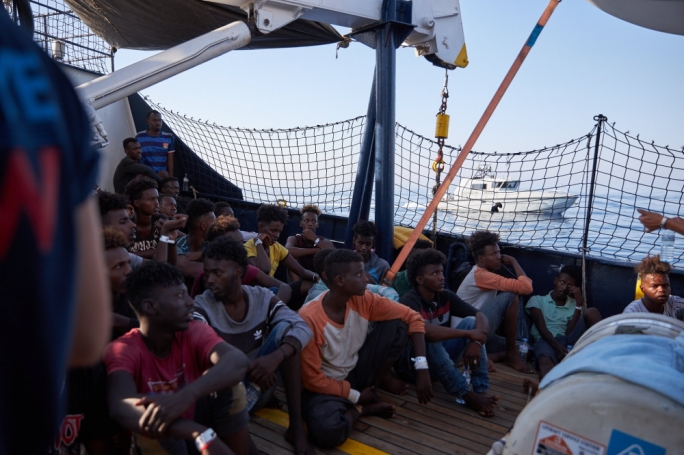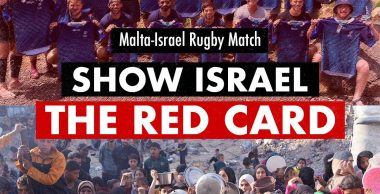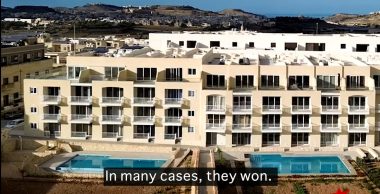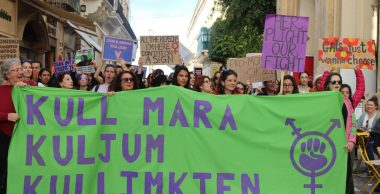Working with the complex social dynamics in a multicultural society can easily risk falling into oversimplified narratives. What is going on with Malta’s multicultural communities requires a sensitive outlook that allows us to break our conceptions of how to be Maltese. Moviment Graffitti has been working to stand up for the rights of the most vulnerable individuals and groups in the networks of migration, whilst also looking at how different communities can come together. The following is a brief overview of our vision and work on migration in Malta.
In the contemporary world, migration is not a one-way process. Most people labelled as ‘migrants’ create identities that exist beyond the boundaries of nation-states, picking up and embodying cultural traits between their home countries and their host countries to create transnational identities. This is a phenomenon we find in Malta, with new African, Indian and Asian businesses taking up elements of the way things are done at home and the way things are done here. Both economic migrants and those with a background as refugees are carving out new paths and new communities that weave complex identities and histories into their networks.
Yet because these identities are not easily classifiable, and because their background does not conform to an imagined sovereignty perpetuated in the state’s narrative, Malta’s institutions constantly push back or do not fully recognise their presence as equals to Maltese citizens. Firstly, in the implications of legislation, and in the general narrative created in government communication to its citizens, migrants are constantly constructed as people with transient identities who will never fit into an imagined Maltese life unless they bend over completely to a series of imagined unchanging ‘values’. At its most extreme, this involves the literal segregation of refugees in centres such as Ħal Far’s open centre and the Safi barracks. Yet even for those who make their way out, and through social contacts (without knowing someone on the outside, the system is almost impossible to navigate) manage to find their way around Maltese society, are still denied basic rights that Maltese citizens take for granted. Former asylum seekers who have since opened businesses, and may be doing relatively well, still find it almost impossible to buy houses and become permanent residents of a country they may have been living and working in for years.
In November last year, the government announced a revision to its Specific Residence Authorisation (SRA) policy, an update to a one-off policy from 2018 which granted a refugee or protection status to a number of migrants, given specific conditions, affording them some stability. The update suddenly gave new applicants a one month ultimatum to submit the required documentation, which led several people into further insecurity over their future in Malta. Moviment Graffitti, along with other humanitarian NGOs, is engaged in dialogue with the government, and with people affected by this policy, to address the issues that arise as a consequence of this sudden revision, including poverty, migrant workers’ rights and their employers’ concerns, and possible deportation.
This is just one of the ways in which people with transnational identities are systemically pushed back from achieving the ‘integration’ which so many government entities throw around as a buzzword. Another phenomenon is the ghettoisation of the migrant population. Those attempting to make their home with very little state support emerge from open centres into areas with high poverty and limited resources. This has the double effect of equating migration to poverty, and of making ‘migrants’ the scapegoat for the state’s lack of providing for these areas.
Urban space is a key feature in analysing transnational communities. Bounded areas, especially in central Malta, are created in the public imagination through frequent stereotyping. Yet on the ground, despite words that may seem racist coming from people the media characterises as objects to be lampooned, there is more ‘integration’ between working class Maltese communities and transnational populations, than between these populations and the middle class who shape the public discourse. Migrants and Maltese are sharing resources and depending on each other, sharing each other’s food and engaging in trade advantageous to all groups. A multicultural society will never be free from conflict, but we have to find ways to channel these conflicts without essentialising any group based on class or race.
This is why, alongside participating in the public debate on government policy, Moviment Graffitti is also taking a bottom-up approach, noticing the social ties that have been forming in communities, highlighting them and following their leads. We are working on proposing the opening of smaller open centres, spread around the island, ones which are more closely connected to the communities around them, to encourage natural community links to form and to end ghettoisation. Governmental entities are aware that this works, but it does not behove the system to implement genuine change.
We have also been collecting the stories of individuals who have migrated here, from different countries and backgrounds, in order to put a face, a name and a life to the many times the word ‘migrant’ is plastered pejoratively across the media.
Moviment Graffitti is working at the grassroots and supporting other organisations at policy level, to do right the injustices delivered to transnational communities through systemic ghettoisation and oppression. A multicultural society is always a complex negotiation of conflict and cooperation, and we are looking at what is already occurring to slowly change the narrative on migration in Malta, using resources that already exist.
Noah Fabri is a member of Moviment Graffitti




